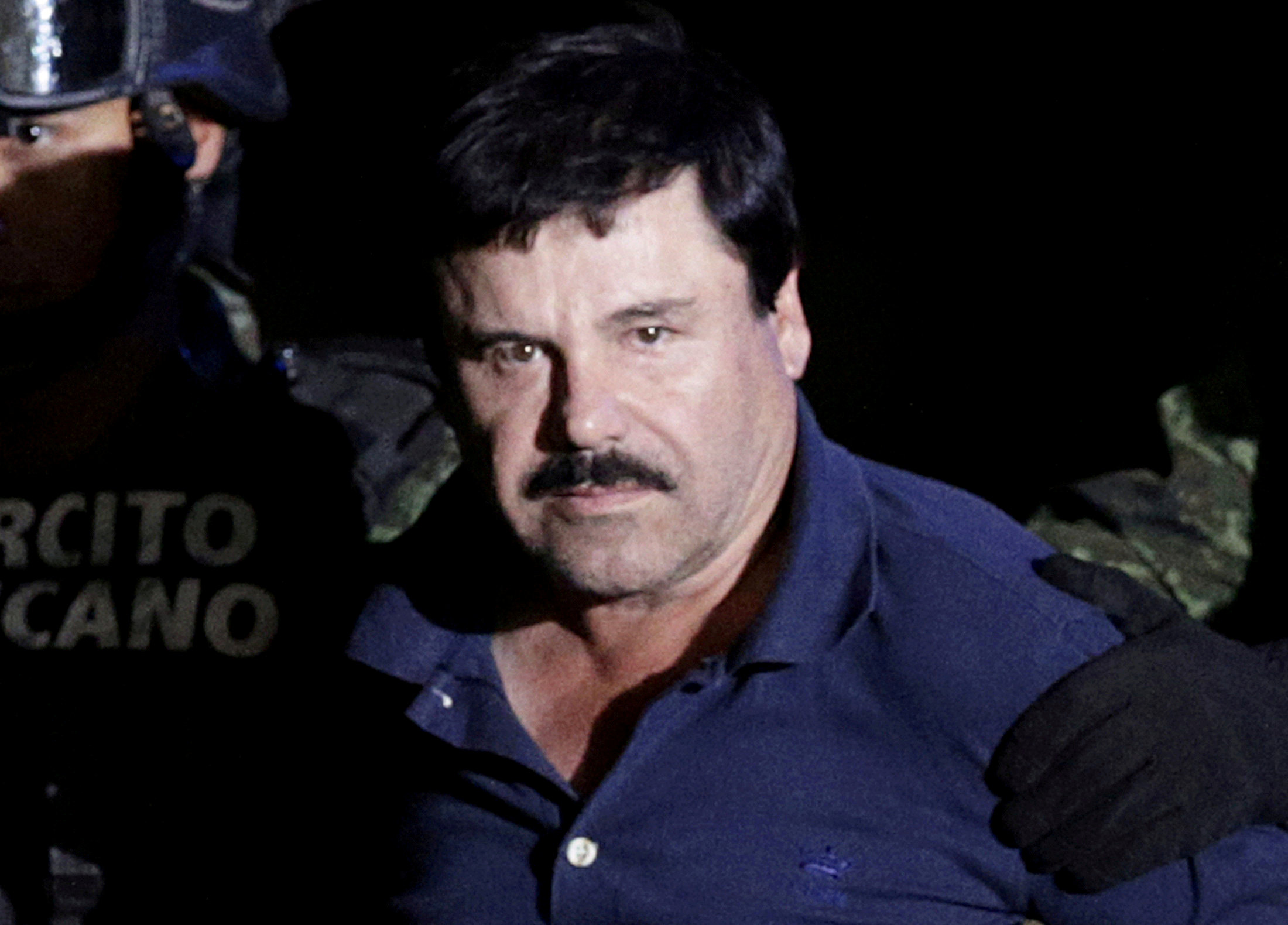
By Brendan Pierson and Jonathan Stempel
NEW YORK (Reuters) -Joaquin “El Chapo” Guzman, the Mexican drug lord who twice escaped maximum-security prisons in that country will spend the rest of his life in a U.S. penitentiary, a federal judge said on Wednesday after accusing him of “overwhelming evil.”
Guzman berated the U.S. justice system, and a former associate described how he had paid a gang $1 million to try to kill her before U.S. District Judge Brian Cogan imposed the mandatory sentence of life plus 30 years.
Cogan also ordered Guzman to forfeit $12.6 billion in a hearing in federal court in Brooklyn.
Guzman, 62, was found guilty by a jury in February of trafficking tons of cocaine, heroin and marijuana and engaging in multiple murder conspiracies as a top leader of the Sinaloa Cartel, long known as one of Mexico’s largest and most violent drug trafficking organizations.
Guzman, whose nickname means “Shorty,” developed a reputation as a Robin Hood-like figure that made him a folk hero to many in his home state of Sinaloa, where he was born in a poor mountain village.
He has been held in solitary confinement in the Metropolitan Correctional Center, a fortress-like jail in lower Manhattan. Cogan last month rejected his request for more time to exercise on the jail’s roof, after prosecutors said that would risk an escape.
Guzman, who recently grew a mustache, complained about the terms of his confinement before his sentence was handed down.
“It has been psychological, emotional, mental torture 24 hours a day,” said Guzman. He alleged that the jurors on his case allowed media accounts of the trial to influence their thinking – an argument his lawyers have also made.
“Since the government of the United States is going to send me to a prison where my name will not ever be heard again, I take advantage of this opportunity to say there was no justice here,” he told the court.
Before he was finally captured in 2016, Guzman twice escaped maximum-security prisons in Mexico. He was extradited to the United States to face trial in January 2017.
Guzman made a name for himself as a trafficker in the 1980s by digging tunnels under the U.S.-Mexico border that allowed him to smuggle drugs more quickly than any of his rivals. He amassed power during the 1990s and 2000s through often bloody wars with rivals, eventually becoming the best-known leader of the Sinaloa Cartel.
His 11-week trial, which featured testimony from more than a dozen former associates of Guzman who had made deals to cooperate with prosecutors, offered the public an unprecedented look at the cartel’s inner workings.
‘EL CHAPO’ ASSOCIATE: ‘I SINNED’
Andrea Velez, a former associate of Guzman, said Guzman had paid the Hell’s Angels motorcycle gang $1 million to have her killed, and that she had escaped with the help of U.S. authorities.
“I confess that I sinned, but I paid a high price for my faults,” Velez said of her work with the cartel.
The witnesses, who included some of Guzman’s top lieutenants, a communications engineer and a onetime mistress, described how he built a sophisticated organization reminiscent of a multinational corporation.
He sent drugs northward with fleets of planes and boats, and had detailed accounting ledgers and an encrypted electronic communication system run through secret computer servers in Canada, witnesses said.
U.S. prosecutors have claimed that Guzman sold more than $12 billion worth of drugs, and Forbes magazine once listed him as among the world’s richest men.
Though other top cartel figures had been extradited to the United States before, Guzman was the first to go to trial rather than pleading guilty.
Guzman often lived on the run. Imprisoned in Mexico in 1993, he escaped in 2001 hidden in a laundry cart and spent the following years moving from one hideout to another in the mountains of Sinaloa, guarded by a private army.
He was seized again in 2014 but pulled off his best-known escape the following year when he disappeared into a ventilated, mile-long (1.6-km) tunnel dug into his cell in a maximum-security prison.
He was finally recaptured in January 2016. The Mexican government says he blew his cover through a series of slipups, including an attempt to make a movie about his life.
Guzman’s lawyers have said they intend to appeal his guilty verdict. They have already asked Cogan to overturn it, citing a report that jurors disobeyed court rules by reading news reports about the case during the trial, but the judge rejected that request.
Despite Guzman’s downfall, the Sinaloa Cartel had the biggest U.S. distribution presence of Mexican cartels as of last year, followed by the fast-growing Jalisco New Generation Cartel, according to the U.S. Drug Enforcement Administration.
(Reporting by Brendan Pierson and Jonathan Stempel in New York; editing by Scott Malone and Jonathan Oatis)




